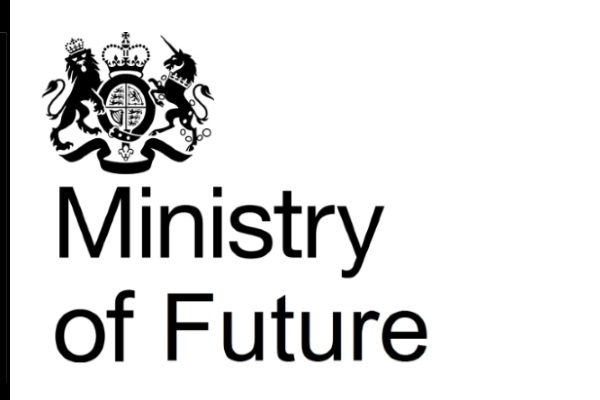Published on the 24/05/2017 | Written by Donovan Jackson

And that’s not the only startling thing in overreaching tech industry manifesto…
As if there weren’t enough government pervading life, business and society already, a group of bureaucratic organisations have put their respective heads together and come up with a master plan which recommends…more bureaucracy. NZTech, along with another 20 industry associations including ITP and InternetNZ have, in all earnestness, recommended the introduction of a Ministry for the Future.
Just on the face of it, we’re going to come out and say, ‘gosh that’s crazy’. Someone in the iStart office was overheard to exclaim ‘they can’t be serious’. However, in an interview Graeme Muller, NZTech CE, confirmed that this was indeed one among many ideas put forward in its Manifesto for New Zealand’s Digital Future.
Planners planning the entire future – what could possibly go wrong? Friedrich Engels and Karl Marx may have been the last to issue a manifesto with such grand ambitions.
The Ministry for the Future is the final one in the dozen manifesto goals, but it is by far the most fascinating. Apparently, this Ministry for the Future is to focus on positioning New Zealand and all government agencies and society to take best advantage of a technologically enabled future.
How it will do that is hard to imagine. Even harder to imagine is the simple question of ‘what happens if this Ministry produces recommendations which are wrong’, since the future is notoriously hard to predict; the trajectory of technological development itself is a capricious thing, despite Moore’s Law.
We asked Muller what such a ministry could do that isn’t already happening. “Well, what we’re talking about is a suggestion for a micro ministry, like Youth or Callaghan, which has heavy external influence so it is not just bureaucrats, but industry people who are already looking at this stuff, looking to the future. A lot is changing at a rapid pace, driven by technology, and we need to consider that as a country; how do we adapt – and this Ministry could inform other ministries on what to expect and how to best prepare for and use technology.”
He agreed that the future is a devilish thing to get right, but pointed to the pace of change. “A simple example is dairy, which is a major contributor to GDP. Are people in government looking at the potential impact of synthetic milk? Are we paying enough attention and what would the implication of that be on the market? Think about education, health, these industries are not coping with the pace of change and we need to address that.”
Education and health are largely under government remit as it is; their failure to adapt might be because of the very inability of government to react at the pace associated with private industry. How more government could be the solution is hard to fathom.
But Muller stressed that what NZTech and its collaborators are advocating is not a bureaucracy with a cast of thousands, but a small setup (though bureaucracies have a startling tendency to grow). “There is international precedent; Sweden has done it recently; they are looking at the implications of technology and what it could mean, advising how government can use it and working with industry to be more aware.”
But aren’t there enough industry bodies already? As it is NZTech has worked with a score of them to produce the manifesto. “Well, totally,” said Muller, “But what is the country’s integrated response?”
He added that the mooted ministry is an extension to the concept of introducing a government CTO.
Which is something Xero’s Rod Drury instantly said felt like a far better proposition. Asked by iStart if he thought a ministry is a good idea, he responded, “That sounds very heavy. I’d prefer an office of the CTO, something very lightweight with a small team to provide that connection between government and business, and perhaps keeping an eye on the ten big things that we should be doing and reporting back to the capital.”
And David Seymour, ACT Party leader and MP, in response to emailed questions, said, “[A] Ministry for the Future sounds like a gimmick. The role of all government departments is to provide a sound and flexible regulatory environment so that people and firms can adapt to the future. Currently, the sharing economy is not being held back by a lack of government, but by too much bad regulation.”
Drury added that the fragmentation of industry associations – there are an awful lot of them in a country with so small a population – means the industry itself tends to be ‘a bit out of synch’.
Yet another body, particularly one which taxpayers will fund, hardly seems the answer.
The 12 manifesto tech goals are:
- New Zealand develops world leading technology by increasing the proportion of digital tech related public research and improving indirect incentives for industry research and development.
- New Zealand equips every child with the digital technology skills needed to be safe and successful in a digital world through comprehensive digital technology education.
- New Zealand is recognised as a world leader in equipping its citizens for the changing economy, through in-work training, career transition support, and public sector leadership in the use of new technologies.
- New Zealanders have affordable access to reliable, high-speed internet, coupled with the skills and equipment to use it. As part of this, there should be parity between urban and rural areas with regards to speed / quality and cost.
- New Zealand is recognised as having one of the most digitally savvy economies in the world, with tech product and service exports being our top export sector. The majority of New Zealand businesses either sell or engage in business online.
- New Zealand remains open for business, welcoming genuine skilled migrants in areas of strong need in the digital and technology sector while significantly improving the process of matching the skills of potential immigrants with areas of un-met need.
- New Zealand continues to be a world leading nation to do business in and with whilst maintaining privacy and data security. This is achieved through a world leading approach to cyber security including education, policy and preparedness.
- New Zealand develops a transparent framework for buyers and sellers through government wide prequalification standards and low cost, easy to use procurement processes.
- New Zealand fully embraces open standards and provides a level playing field for technology in general, and IT services in particular.
- New Zealand continues to be recognised internationally as a bastion for privacy, a country which values and protects the privacy of its citizens through policy whilst still allowing economic growth.
- New Zealand embraces online digital tools to provide efficient, consultative and inclusive policy-making process or allowing for rapid updating of legislation.
- New Zealand establishes a dedicated, Ministry for the Future, focusing on positioning New Zealand and all government agencies and society to take best advantage of a technologically enabled future.



























